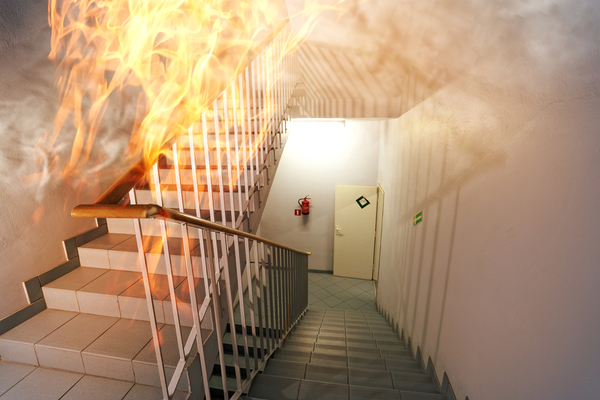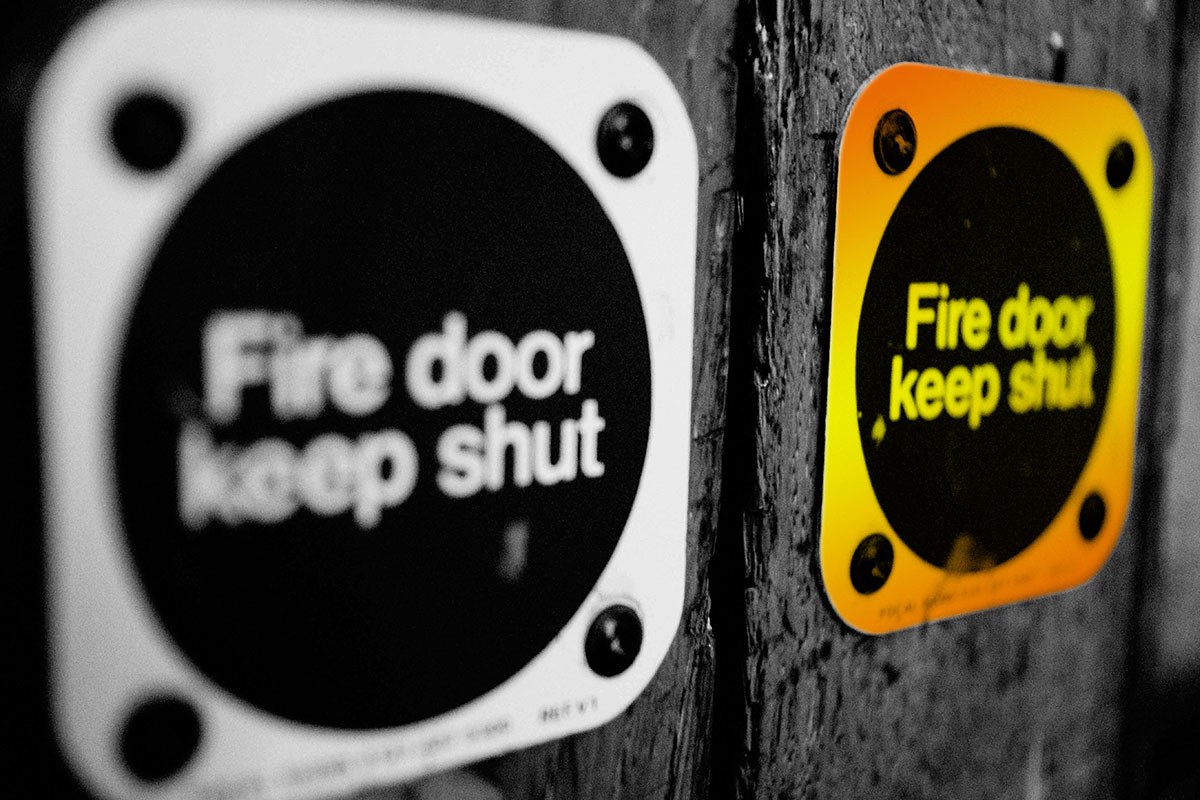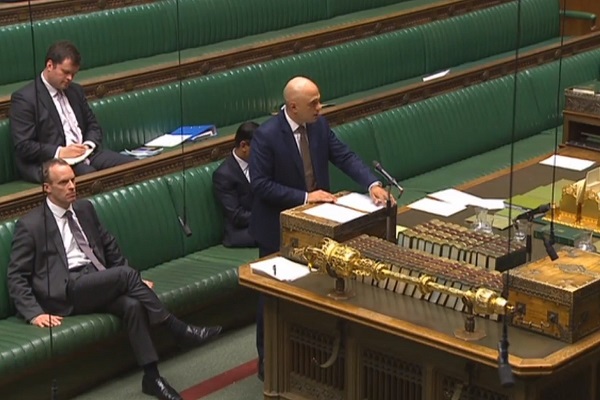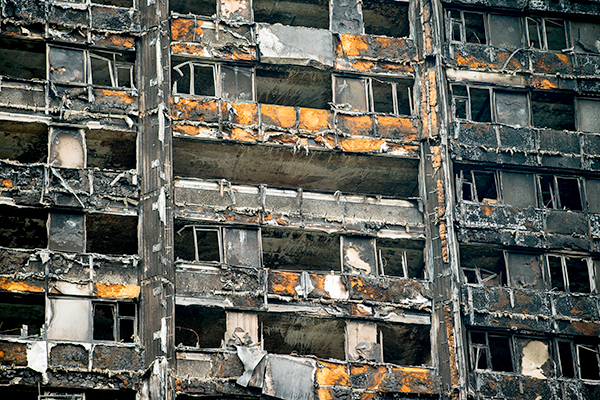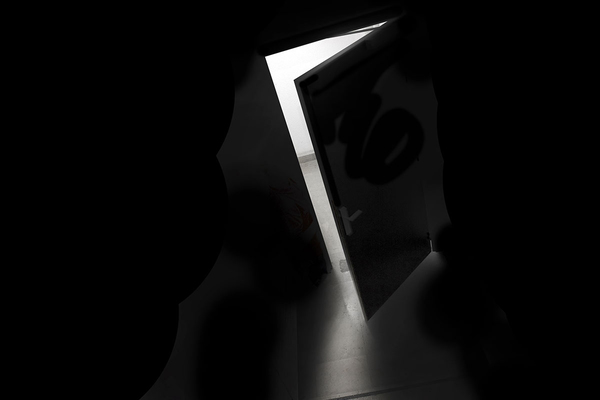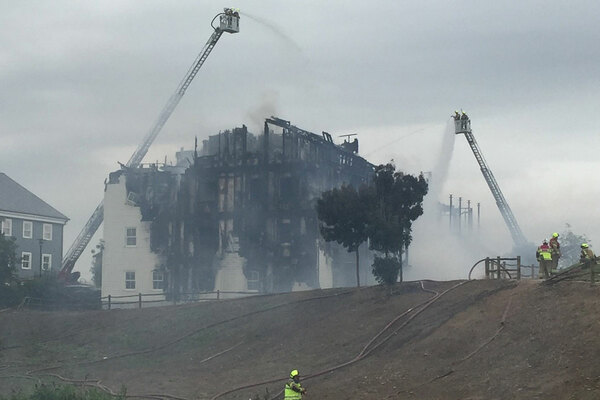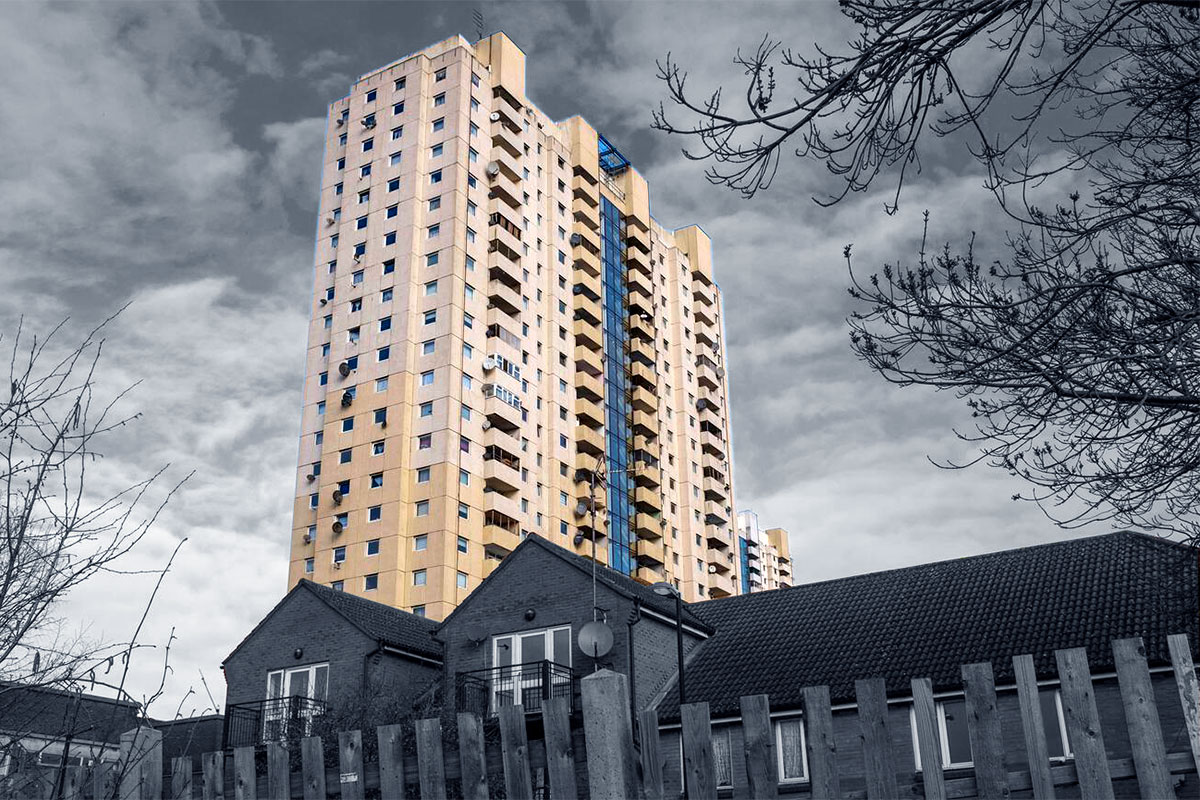You are viewing 1 of your 1 free articles
Fire door industry needs mandatory third-party checks, trade body warns
The government should overhaul the fire door industry to make third-party checks mandatory, a trade body has warned.
Following an announcement earlier this month by the Metropolitan Police that fire doors in Grenfell Tower were found to only resist fire for 15 minutes – half the time of government specifications – the British Woodworking Federation (BWF) said it had lobbied government for years about toughening up the checks on fire doors.
Iain McIlwee, chief executive of the BWF, said: “The government’s been warned by not just our organisation, but many other different organisations, who have lobbied over the years for mandatory third-party certification of fire safety products, but it was always seen that it would be a burden to the industry if you made it law.”
Building regulations require fire doors facing communal areas to have a minimum of 30 minutes’ fire resistance.
This resistance is proved through a British Standard test, but Mr McIlwee said not all of these tests are certified by third parties.
He said some of the fire door industry is regulated by carrying out voluntary third-party certification of their products, where an external body regularly tests the product and audits the factory to make sure the manufacturer has a strict production control system in place.
He added: “A large part of the fire door market does operate in this manner because they had a scare 20 years ago when trading standards did an investigation.”
However, another “large part” of the market operates by self-declaring the safety of a product and using test reports that could be years out of date, he said.
He added: “The test report just shows that the product passed the test on the day it was tested. It doesn’t mean the manufacturer can go back to their factory and consistently make the same specification again and again.”
The fire door in Grenfell was made by Manse Masterdor, a now defunct company, and is believed to have come from a batch manufactured in 2013.
The Metropolitan Police tested three doors, all of which failed. They included undamaged doors taken from the tower and at least one of the same design which was not installed in Grenfell, Inside Housing understands.
It is understood the doors are used throughout Kensington and Chelsea Council’s stock and are also used by other local authorities and housing associations, including Barking & Dagenham Council.
Last week, social landlords said they were carrying out checks on their stock. Ministers have previously said they believe there is “no evidence that [the issue with the Grenfell fire doors] is a systemic issue” and no further action was required.
